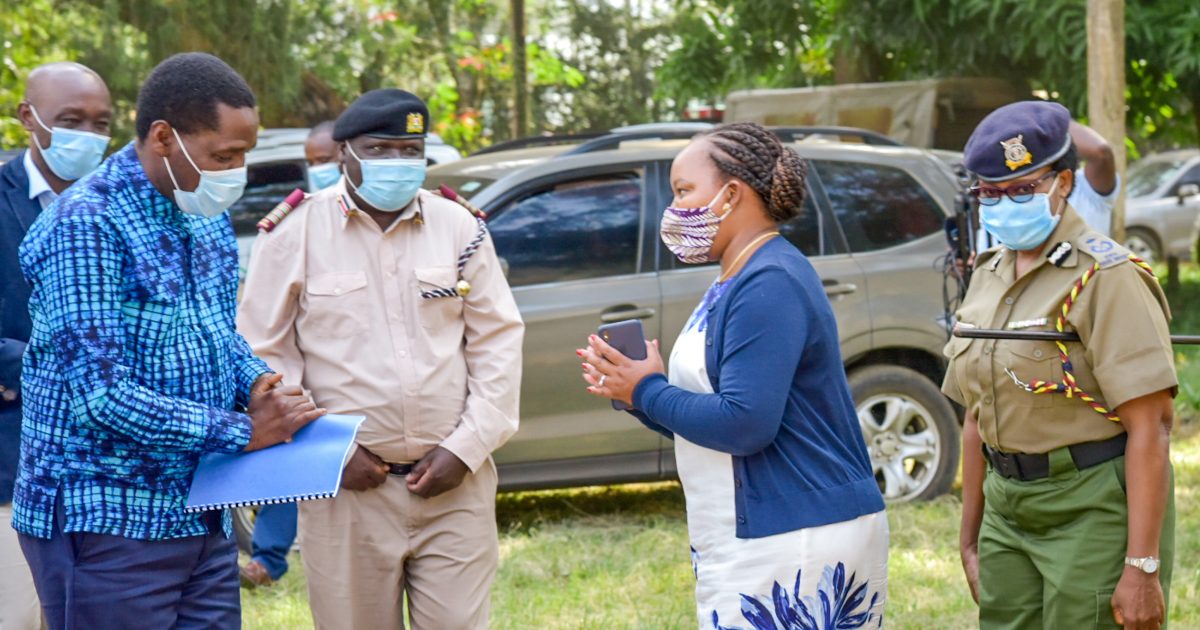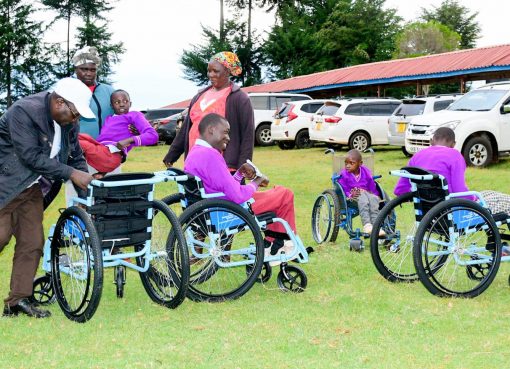Coffee farmers have welcomed the introduction of crops regulations which require coffee buyers to pay for commodity within five days after a sale has been concluded.
The law is aimed at eliminating and reducing post-harvest losses as well as middlemen along the supply line chains.
Cabinet secretary for Agriculture Peter Munya said President Uhuru has appointed a five member committee which is working towards the establishment of the commodities exchange market, after Parliament passed the Warehouse Receipt System (WRS) Act, 2019.
“The new law will enable farmers to sell their commodities without the need to move them. What will be transferred instead is a warehouse receipt, providing proof of ownership of commodities stored in a warehouse.” Munya said while addressing a group of farmers at Sagana coffee mils in Kirinyaga.
He said the new arrangement is aimed at eliminating and reducing post-harvest losses as well as middlemen along the supply line chains.

Pics by Irungu Mwangi
This will be good news for coffee farmers who will now be able to follow and know when and how much their coffee has fetched in the online platform.
The warehouse can allow them to sell the goods at a later time, when prices have picked up, thus avoiding the price risk.
Munya said those who contract the services of the warehouse will pay a fee for storage and care, which is expected to significantly lower post-harvest losses.
“With a WRS, farmers will be able to deposit storable goods – mostly grains or coffee – in exchange for a warehouse receipt. According to the Act, the “WRS,” will entail depositing commodities in a licensed warehouse, the issuance of a receipt which will bear the quantity and quality of the deposited commodity.
The receipt system will also elaborate how the ownership of the document can be transferred, as well as the regulation of warehouses and actors associated in the processes.
The legislation also establishes the Warehouse Receipt Council that will facilitate the establishment, maintenance and development of the WRS for agricultural commodities produced in the country.
Kirinyaga County Governor Anne Waiguru who also attended the meeting called for guaranteed coffee prices for coffee farmers.
The governor, and representatives of all the 15 Coffee Cooperative Societies in Kirinyaga County, said that coffee farmers in the region have for a long time suffered in the hands of middlemen who buy coffee from farmers without any guaranteed price.
Waiguru called for speedy implementation of President Uhuru’s directives on coffee sector reforms which will see farmers benefit from the Cherry Advance Revolving Fund among other reforms.
The governor, who has been in the forefront in facilitating negotiation forums between Kirinyaga coffee farmers and potential buyers said that the best that can happen to coffee farmers is having direct market for their coffee
She said such an arrangement would save them from exploitation by middlemen. They would also be able to negotiate for a guaranteed price for their crop.
Governor Waiguru noted that the County that has 44, 969 acres of land under coffee grown by 67,578 farmers has a great potential in coffee sector if the prevailing challenges were adequately addressed.
“We are looking forward to speedy implementation of the President’s directives on coffee sector recovery and also the operationalization of Cherry Advance Revolving Fund.” She said.
She said that such funds would cushion farmers through access to finances to meet their daily flow requirements by giving them advance pay for their delivered cherry. Currently, farmers are forced to wait for their pay for months after delivering their cherry.
She also wants consideration of a stabilization fund to cushion farmers against fluctuating cherry prices caused by prevailing international market rates
The governor cited some of the challenges faced by coffee farmers in the region. Such include lack of direct markets for coffee, delay in payment to farmers, unfair compensation by buyers and lack of access to affordable farm inputs such as fertilizers and chemicals.
Some of the areas of intervention that the governor cited included supporting farmers to access direct market for their coffee, facilitation of access to guaranteed and good prices for their crop and building the capacity of extension service provides and farmers in order to increase production.
She also said that there is need for research and technology in coffee production as well enhancing the efficiency of coffee farmers Cooperatives.
The Governor also called upon the ministry of agriculture to undertake debt waivers for coffee cooperatives so that farmers can be freed from the debt burden to enable them enjoy better returns from sale of their coffee.
Governor Waiguru assured the farmers that the county government is committed to supporting value addition of coffee such as coffee roasting to provide for direct sale to resident. She cited Mwirua Coffee Cooperative that has coffee value addition equipment saying that such initiatives would encourage local coffee drinking culture hence local markets.
The average production of coffee in Kirinyaga County is 30,000 tonnes with 2018/2019 registering 34,729 tonnes. The governor said that this amount can be improved to more than 50,000 tonnes if the prevailing challenges are addressed.
The county has 15 cooperative societies with 75 factories.
Kirinyaga coffee is mainly produced by small scale farmers with the county having some of the most favourable climatic conditions for coffee production in the world.
By Irungu Mwangi.Caption




